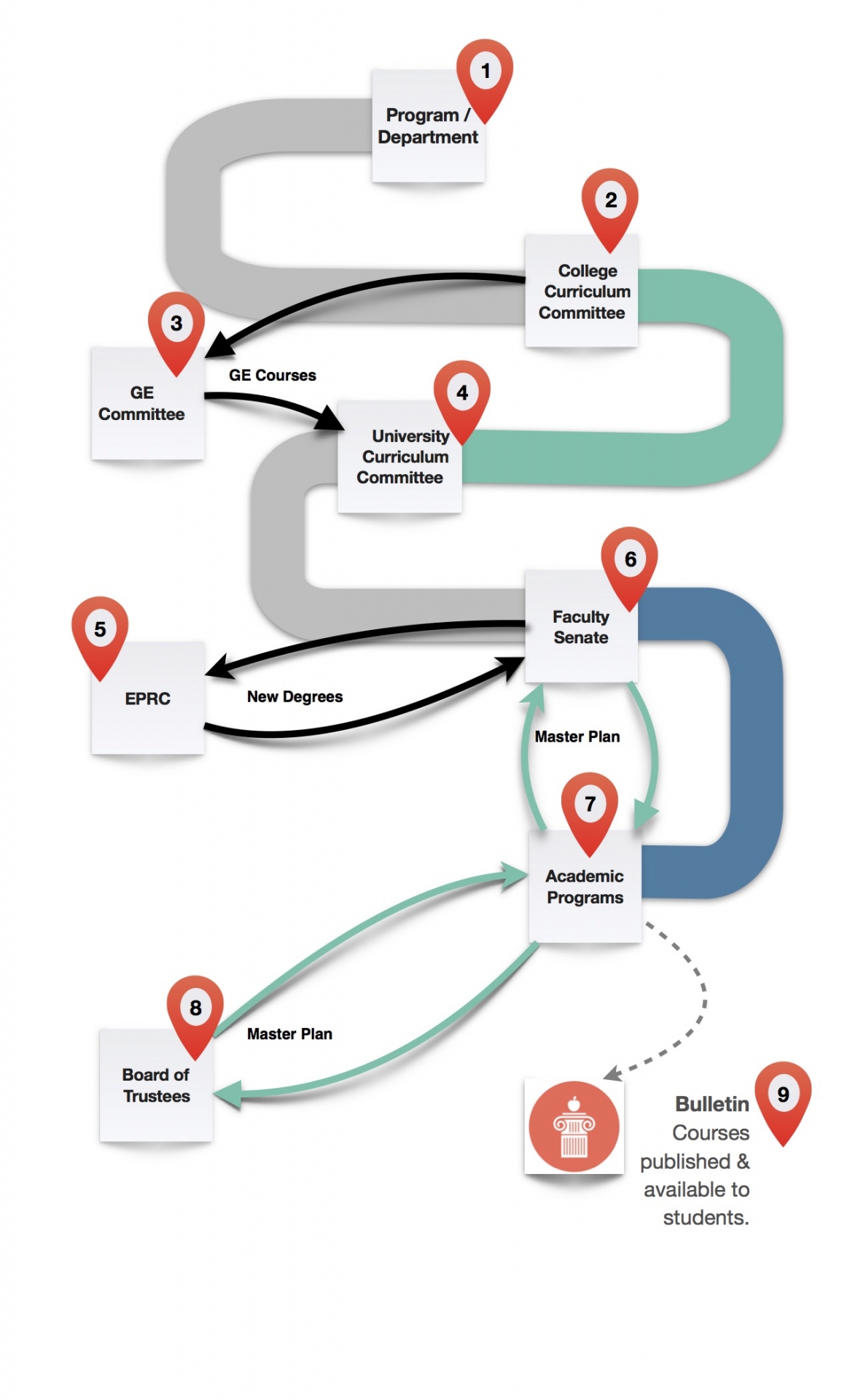
Curriculum Approval Process (Flow Chart)
Within a department (or departments for interdisciplinary programs), faculty will decide upon the appropriate number, sequence and content of courses. CourseLeaf (CIM) forms for courses (C forms) and Programs (P forms) will be completed and signed by the Department Chair(s) before moving forward. For new degree programs, see the CSU New Program Development website.
Relevant Policies: FAM 822.5 Curriculum Guidelines, FAM 847.7 Independent Study Courses, FAM 827.3 Distributed Learning Policy, CSU EO 806 Certificates and Certificate Programs,
The College Curriculum committee oversees the forms and check for appropriate consultations.
Relevant Policies: None.
When courses are submitted for the GE program, they must be approved by the GE Committee before going to the UCC. Additional forms are required.
Relevant Policies:Faculty Senate By-Laws, Section 2D, FAM 822.5 Curriculum Guidelines, FAM 838.4 Policy Concerning Guidelines for the General Education Program, CSU EO 1061 Graduation Requirements in US History, Constitution and American Ideals,
The UCC checks for coherence in the course descriptions and program organization.
Relevant Policies: Faculty Senate By-Laws, Section 2A, FAM 822.5 Curriculum Guidelines,
New degree programs (B.A., B.S., M.A., M.S.) must be approved by EPRC. Additional documentation required.
Relevant Policies: Faculty Senate By-Laws, Section 2B,
Curriculum appears on the Faculty Senate agenda as an information item. However, any Senator can make a motion to amend the agenda to make something (including a course or program proposal) an action item (i.e. with a discussion and vote). The Faculty Senate also votes annually on the Academic Master Plan (PDF) (a calendar for the introduction of new degree programs).
Relevant Policies: Faculty Senate By-Laws, Section 2, FAM 402 Responsibilities of Academic Senates within a Collective Bargaining Context, CSU EO 1100: GE Breadth Requirements,
AP works with the Offices of the Registrar & Records to enter information into PeopleSoft and prepare the Bulletin. AP is also responsible for reporting to the CSU system and WASC regarding compliance with policies and accreditation standards. AP also communicates between the CSU Board of Trustees and the Faculty Senate regarding the Academic Master Plan.
Relevant Policies: CSU EO 918 Lower Division Transfer Patterns,
All new degree programs must be approved by the CSU Board of Trustees. Future degree programs are part of the Academic Master Plan. Pilot programs can be implemented more quickly but must prove successful before becoming permanent.
Options, concentrations, special emphases and minors are approved by the campus president (see CSU EO 602).
Relevant Policies: FAM 822.5 Curriculum Guidelines,
For more information about policies, see:
- CSUSB: Faculty Administrative Manual
- CSU (System): Policies
- CSU (System): New Programs
- CSU (System): Program Modification
- CSU (System): Accreditation